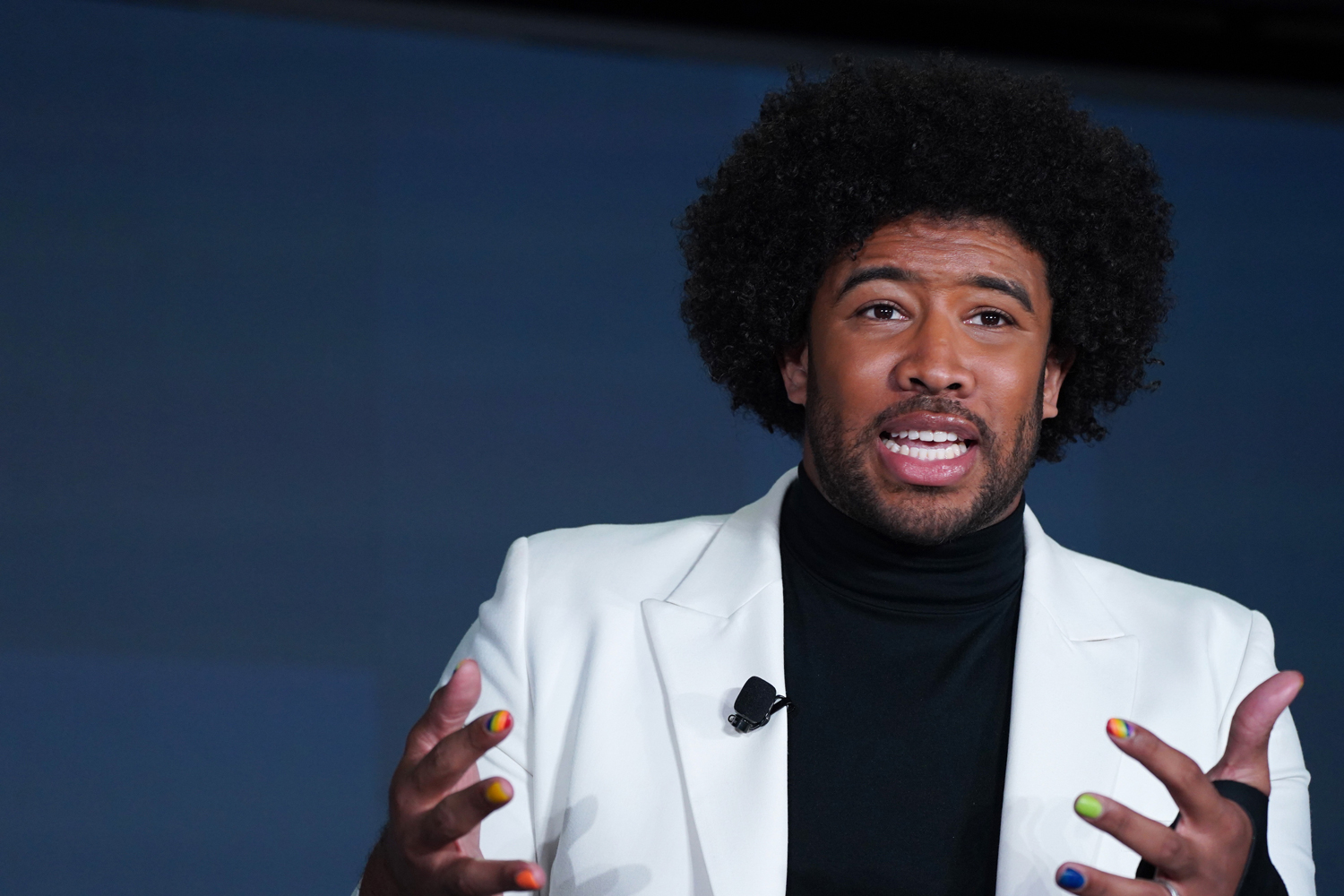When he can’t bring himself to tell a fellow comedian to call it quits, Eddie learns that kindness and love aren’t always the same.
I’d respected Bob Smith long before our friendship began 12 years ago. He’d fearlessly plunged into stand-up comedy at age 18 and was brave enough to come out onstage at the height of the AIDS epidemic. He’d blazed trails as the first openly gay comedian on The Tonight Show and the first gay man to have an HBO special. So the first time we worked together, I was eager to win his approval.
Thankfully, on our opening night together, I killed — immediately earning his respect. We hit it off and found that we functioned on the same wavelength — frequently coming up with near-identical zingers in unison. I also learned Bob doesn’t pull punches when it comes to comedy. If something stinks, he tells you.
Read next | This Is How Straight Girls Can Ruin Your Favorite Gay Bars
Finding a friend whose comic instincts you trust and who tells you the truth is rare. We comedians need people who aren’t afraid to tell us a new bit sucks, who won’t let us go onstage to die a death by a thousand glares. Kindness is kind, but — for us — the brutal truth is love.
I’ll never forget the first time Bob told me a joke that I couldn’t understand. At that point, Bob’s tongue had become almost immobilized by ALS — a degenerative disorder commonly known as Lou Gehrig’s disease. He stood there, forlorn, as his one-liner dissolved in the air, and I smiled to veil my discomfort.
More Content from MetrosourceThere’s little that either of us treasure more than a brilliant joke. As comedians, we appreciate a line’s elegance, economy and rhythm — the power of its consonants, the tension in its pauses. The joy of a well-delivered wisecrack is one of the most beautiful things I know. When a line lands perfectly, it creates a moment of grace, free of loneliness for both the teller and the listener. In every laugh shared, there is love. That his illness would eventually steal those moments from Bob broke my heart. The loss of that gift would crush me. How could I tell him it might be time to give it up?
Though his voice had gotten progressively weaker during the years since his diagnosis, Bob kept performing — lightheartedly assuring audiences that his slurred words were due to his ALS and not because he was inebriated. At one of his last appearances, I watched from the back of the house as much of the crowd struggled to understand him. I was grateful that a bunch of his fans had turned out to encourage him with laughter and applause. I thought, “This would be a good note for Bob to end on.”
I flashed back to another ailing comedian pal’s final performance. He’d gone onstage, gaunt and frail from his disease. His appearance silenced the room, and we watched helplessly as his increasingly desperate attempts to connect with the audience failed. I dreaded that Bob would experience a repeat of that horrible night. But after 30 years as a comedian, I knew that making people laugh was inextricably laced into Bob’s identity. I couldn’t make myself tell him to throw in the towel.
I was in Florida for a gig when I saw Bob’s post on Facebook: I just did stand-up for the last time. He had gone onstage to do a set, and his mangled speech had been met with nothing but cold silence from the crowd. I cried — wishing I’d tried harder to save him from that, wishing I’d found a way to be more be more than kind.
Read Next | This Week’s Best LGBT Events in New York City
Fortunately, since then, Bob has focused on other ways to touch the world with his words. Though now silent — and reduced to typing with one finger — he’s written several books full of humor so sharp you could get paper cuts reading them on a Kindle.
Bob has still got more to say, and he’s optimistic he’ll get to say it, but given the current lack of treatments for ALS, he’s racing against time. The effort he spends typing each sentence seems torturous; so, when he asks my opinion on what he’s writing, I’m tempted to be kind. But I don’t hold back; that’s not the way we love each other.
Eddie Sarfaty is a comedian and the author of Mental: Funny in the Head. Learn more and find out when Eddie’s performing at keeplaughing.com.
Want Metrosource LGBTQ content notifications? Sign up for MetroEspresso.
Last modified: July 8, 2019











